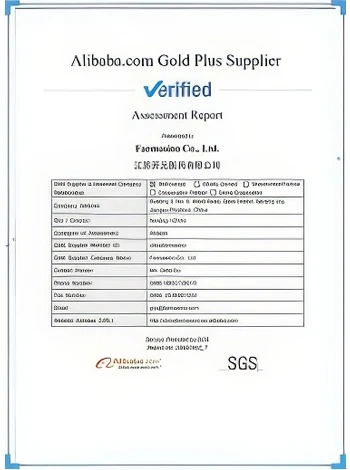



swimming pool water treatment methods
Swimming Pool Water Treatment Methods
Maintaining a clean and safe swimming pool is crucial for the health and enjoyment of its users. Overwhelmingly, the focus of pool maintenance revolves around water treatment methods. These methods ensure that the water is clear, free of harmful pathogens, and chemically balanced. In this article, we’ll explore several prominent swimming pool water treatment methods, their advantages, disadvantages, and the best practices for keeping your pool in top condition.
1. Chlorination
Chlorination is one of the most commonly used methods for disinfecting swimming pool water. Chlorine is a powerful oxidizing agent that kills bacteria, viruses, and algae. It can be added to the pool in various forms, including gas, liquid, and tablets.
Advantages - Effective at killing a wide range of microorganisms. - Relatively inexpensive and widely available. - Easy to monitor and adjust chlorine levels using a test kit.
Disadvantages - Chlorine can cause skin and eye irritation in sensitive swimmers. - It produces chlorine byproducts, such as chloramines, which can cause a strong chemical smell and reduced swimming enjoyment. - Requires regular monitoring of chlorine levels to maintain balance.
2. Saltwater Systems
Saltwater pools are becoming increasingly popular due to their perceived health benefits and lower chemical usage. In this method, salt is added to the pool water, and a saltwater chlorinator converts it into chlorine through a process called electrolysis.
Advantages - Gentler on the skin and eyes compared to traditional chlorine pools. - Lower ongoing costs since the pool generates its own chlorine. - Produces a more stable chlorine level, reducing the need for constant monitoring.
Disadvantages - Higher initial setup costs for saltwater systems. - Requires specific maintenance and replacement of salt cells every few years. - Can cause corrosion in metal fixtures and pool equipment if not properly balanced.
3. UV Water Treatment
Ultraviolet (UV) water treatment is an advanced technology that uses UV light to disinfect pool water
. The UV system kills bacteria and other pathogens without the use of chemicals.swimming pool water treatment methods

Advantages - Does not add any chemicals to the water, thus eliminating chlorine-related side effects like irritation or odor. - Provides an additional layer of sanitation, complementing other treatment methods. - Effective against a wide range of harmful microorganisms.
Disadvantages - Requires a secondary sanitation method, as UV alone does not provide a residual disinfectant in the water. - Initial costs for UV systems can be higher than traditional methods. - Regular maintenance of the UV lamps is necessary to ensure effectiveness.
4. Ozone Water Treatment
Ozonation is another alternative water treatment method that uses ozone gas to disinfect the water. Ozone is a powerful oxidizer that kills bacteria and viruses much faster than chlorine.
Advantages - Highly effective at breaking down organic contaminants and reducing chlorine levels. - Produces no harmful byproducts and does not cause irritation. - Can improve the overall clarity of the water.
Disadvantages - Ozone has a very short lifespan, meaning it does not provide residual disinfection. - Requires a secondary sanitizing method to ensure ongoing water safety. - Higher installation and maintenance costs associated with ozone generators.
5. Enzyme-Based Treatments
Enzyme-based treatments utilize natural enzymes to break down organic matter like oils, lotions, and debris, reducing the workload on other sanitation systems. Enzymes enhance the water's clarity and reduce the need for harsher chemicals.
Advantages - Eco-friendly and gentle on the skin. - Reduces the need for chlorine and other harsh chemicals. - Improves water clarity and reduces scum buildup.
Disadvantages - Not a standalone solution; requires complementary disinfectant methods. - Can be less effective in heavily used or poorly maintained pools.
Conclusion
Choosing the right water treatment method for your swimming pool depends on a variety of factors, including cost, maintenance level, and swimmer preferences. Each method has its benefits and drawbacks, and often, combining methods yields the best results. Regular maintenance and quality testing are paramount to ensuring the water remains safe and enjoyable. As pool technology advances, innovative solutions are continually being developed to enhance both the effectiveness and enjoyment of swimming pools worldwide. Whether opting for traditional chlorination or more modern approaches like saltwater systems or UV treatment, remaining vigilant in water quality management is key to a refreshing and healthy swimming experience.
-
Why Sodium Persulfate Is Everywhere NowNewsJul.07,2025
-
Why Polyacrylamide Is in High DemandNewsJul.07,2025
-
Understanding Paint Chemicals and Their ApplicationsNewsJul.07,2025
-
Smart Use Of Mining ChemicalsNewsJul.07,2025
-
Practical Uses of Potassium MonopersulfateNewsJul.07,2025
-
Agrochemicals In Real FarmingNewsJul.07,2025
-
Sodium Chlorite Hot UsesNewsJul.01,2025










